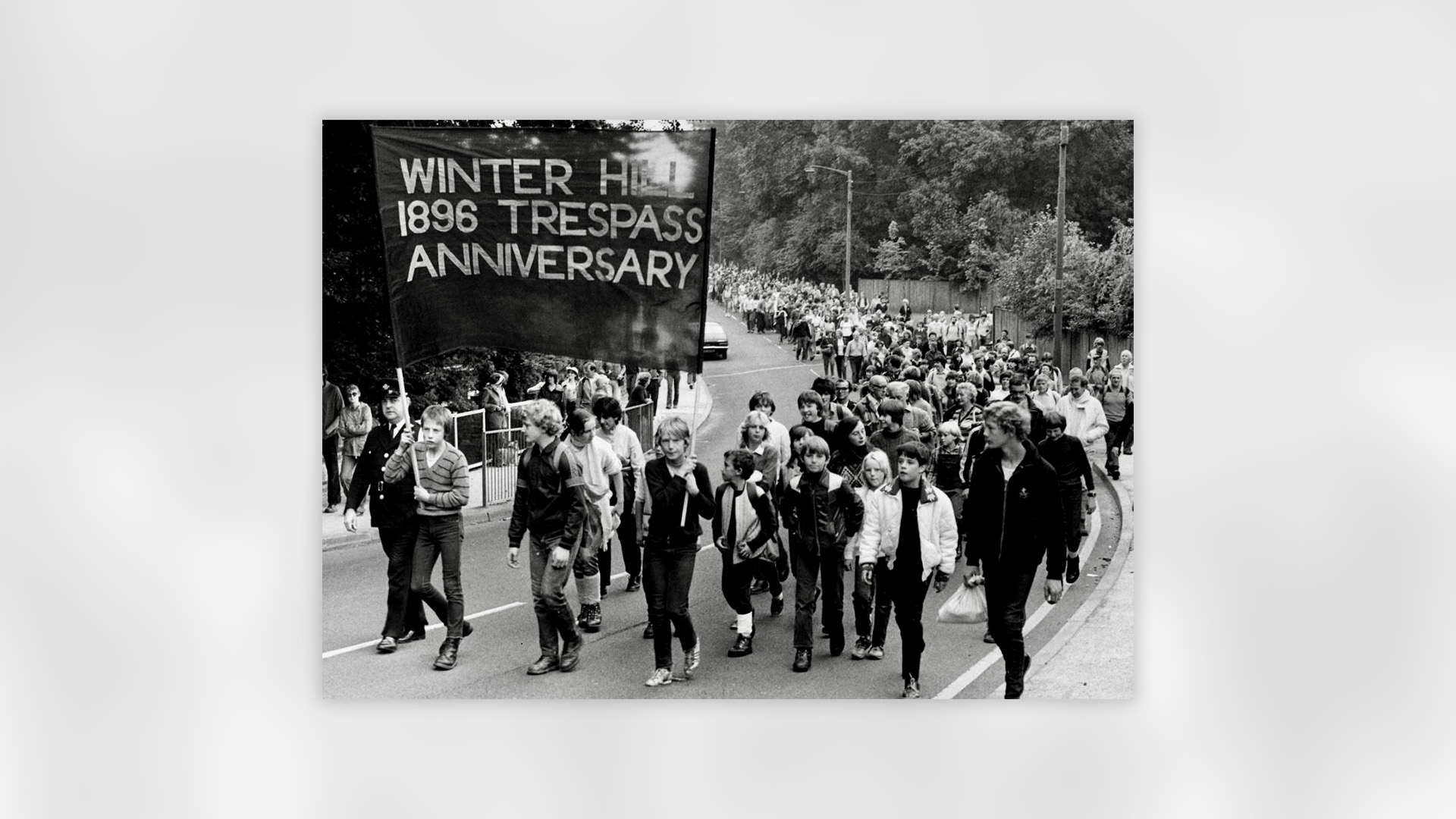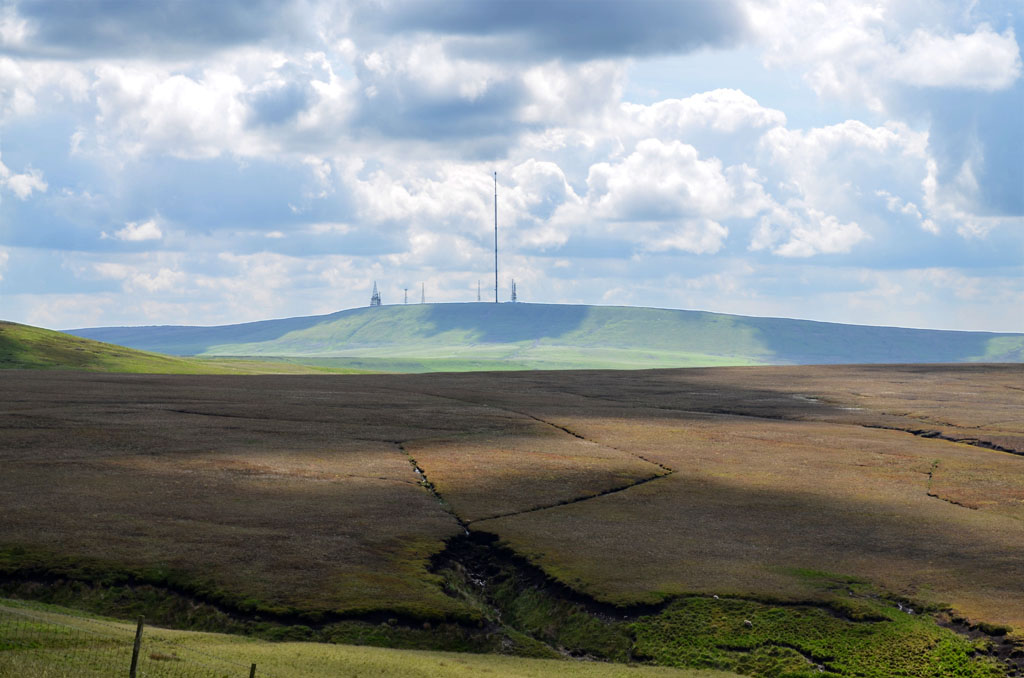
Will yo’ come o’ Sunday mornin’
For a walk o’er Winter Hill?
Ten thousand went last Sunday
But there’s room for thousand still!
Oh there moors are rare and bonny
And the heather’s sweet and fine
And the roads across the hilltops –
Are the people’s – yours and mine!
These are the lyrics to a song written in 1896 by a Bolton poet called Allen Clarke. One hundred and twenty-nine years ago, on this very day, you could hear this song echoing through a patch of West Pennine moorland just north of Bolton town centre as it was being sung by 10,000 Boltonians, instilling in them a sense of camaraderie, justice and a confidence that what they were doing was right.
This act of defiance stemmed against the activity of one Colonel Ainsworth, a local mill owner who was the landlord of the moorland around his family home of Smithills Hall. This land made for an excellent grouse shoot and so he increasingly began to restrict access to the common man and eventually closed an ancient path over Winter Hill by erecting a gate. Working-class Boltonians, who had walked over the moor without trouble for generations and who believed it was their right to do so, were understandably furious. Therefore, the town’s Social Democratic Federation, with the help of the trespass’s two ringleaders, Joseph Shufflebotham, a shoemaker, and Solomon Partington, a local journalist, organised, with just three days’ notice, a procession ‘to test the right of way’. This procession became known as the Winter Hill Mass Trespass of 1896.
On Sunday 6 September, a few hundred Boltonians met outside one of Ainsworth’s mills and after surging up through the town and along Coalpit Road they reached Ainsworth’s gate. By this point, the crowd had swelled to over 10,000 people. With knowledge of the march, the Colonel had positioned his gamekeepers and the local constabulary next to a sign on his gate that read ‘Trespassers will be prosecuted’. This threat, however, did not deter the people of Bolton who were so determined to reclaim their beloved moorland that they burst onto the disputed path. They then continued over Winter Hill and down to Belmont, where, in their jubilation, they drank the local hostelries dry. In the aftermath of the procession, Solomon Partington reflected that ‘It would have been a misfortune and an incalculable loss to Boltonians of the future if steps had not been taken regardless of time or cost.’
The demonstration caused quite the stir and through pamphlets, word of mouth and a feature in the local paper, a second march was organised. Much like the line of the song, ‘But there’s room for thousand still!’, on the next Sunday, 2,000 more Boltonians attended than the previous week, amounting to a whopping 12,000 protesters, or close to 10% of the town’s population. The protest was one of the largest of any kind in the UK within the nineteenth century. It remains today the largest mass trespass in recorded British history, even eclipsing the more famous mass trespass up Kinder Scout in 1932.

You may then wonder why you haven’t heard of this remarkable turn of events before, despite Winter Hill being a modern beacon to the North-West with its telecom mast that is visible for miles around. The answer lies in the socio-economic status of the trespassers; as working-class men and women they were no match against Ainsworth’s authority as Chairman of the local council and Justice of the Peace for Lancashire. The Colonel was in a position of power, this giving him undue influence in how the events of 1896 were to be remembered. Consequently, in accounts of the trespass, such as the one in the Smithills Hall museum, the heroism of ordinary men and women fails to be mentioned because they went directly against the Colonel’s command. What’s more, Ainsworth took the ringleaders of the trespass to court four years later, in 1900. Despite the people of Bolton coming together to help fund legal defence, the level of representation they could afford was no match for the highly skilled barristers Colonel Ainsworth funded, and so they lost the case and were subjected to heavy fines. History has painted the trespassers as the antagonists in Bolton’s ‘right to roam’ story, it is therefore our job to reinterpret this narrative and focus on their courage, rather than their disobedience.
Throughout recent years the people of Bolton have taken action to commemorate this significant event in the town’s history. In 1996, to mark the 100 h anniversary of the trespass, a memorial stone was placed at the site of Ainsworth’s old gate and Coalpit Road was formally declared a public Right of Way. 25 years later, a large-scale commemorative walk took place, publicised by home-grown actor Maxine Peak, with around 1000 participants retracing the trespassers original route over the moor. In addition, Bolton Town Hall was illuminated green over the anniversary weekend. The legacy of 1896 has subsequently had a national impact through Bolton West’s MP, Phil Brickell, announcing, in 2024, that he would champion the right to roam in parliament.
For Boltonians in 1896 the moorland acted as an escape from the polluted mill town and their 90-hour-per-week jobs; for Boltonians in the present day, such as myself, the moor still acts as this escape. Take the recent pandemic, where the countryside allowed us to get away from the misery of quarantine, or, in a world so dominated by technology, a walk up the moor allows for a moment of calm away from our busy screens. Without the trespass, this arrogantly usurped public escape could have been lost forever, yet we don’t celebrate or talk about its achievements enough. It was the determined and fierce Northern spirit, enduring to this day, which set a precedent for public access campaigners of the future. With our countryside having been placed under threat in the last century through Rights of Way being eroded and inappropriate development threatening the landscape, it is imperative that on this 129th anniversary, the 1896 Winter Hill Mass Trespass is remembered, not only in Bolton, but across the North of England.
Header image: An anniversary march commemorating the Winter Hill Trespass of 1896 (Dr Paul Salveson)